As a new wargamer in a small town, solitaire play is about your only option. Wargamers are far and few between. Many times that is our only option. Unfortunately, wargamers are often forced to become experts at solitaire play. Is this worthwhile? Is it good to do? Does it teach you bad habits?
“What are you doing?”, my aunt asked. “Oh, just playing a new game I got.”, I responded. “Who are you playing with?” she asked. “Nobody. I’m just going through it on my own.” I said. She burst out laughing so hard that she almost fell down.
She made a few silly jokes like, “How do you know when you’ve beaten yourself?” and “Do you get mad at yourself when you lose?” Interspersed with generous rounds of continued hysterics. She was mostly having fun but she really did not understand how playing a game by yourself could be possible at all.
This can be a huge stumbling block for new players trying to start in the hobby. In addition to learning a new hobby and game system, most likely they will have to figure out how to play without an opponent.
Wargames don’t come with instructions on solitaire play. It can be difficult for new players to figure out but I’ve even noticed that veteran wargamers sometimes struggle with this. I’ve heard wargamers often declare games as unplayable for solitaire; the very games that I find fascinating in solitaire play.
My aunt’s question was valid. How is it even possible to play a game without an opponent? Here are some tips to help you get started if you are new. Veteran wargamers might also find a few new insights they haven’t thought of before as well.
Goal
The main difference I notice at first is the primary goal. WHY are you playing? In regular games, you play to win! If you are playing both sides, that doesn’t work. What does that even mean? For solitaire play, we need a new goal.
Here is the key difference: The goal is not to win.
The goal is to learn.
This focus changes our entire perspective on the game. We don’t care anymore who wins. This frees are mind to really learn. Learn things you might not otherwise. Learn the rules of the game better but also lessons on tactics, strategy, history and leadership.
Play both sides to the best of your ability.
Actually, (yes, I’m contradicting myself here) we do care who wins. We want both sides to win. When you make a move for a side:
make the best move possible, for that side, given the current situation.
Defense: Ready for Anything
Usually there is a weaker, defending side and a stronger offensive side. I find that it works well to set the defense up first. What will the offense do? I have no idea. I haven’t even started to think about that yet. How should you set up the defense? Where is the enemy most likely to attack? Where are you weak and vulnerable? What key areas MUST be held? When I set up the defense, I try to set them up for maximum flexibility. Be prepared for ANYTHING. This usually means a light setup along the front with a strong, mobile reserve force able to respond where needed.
Example:
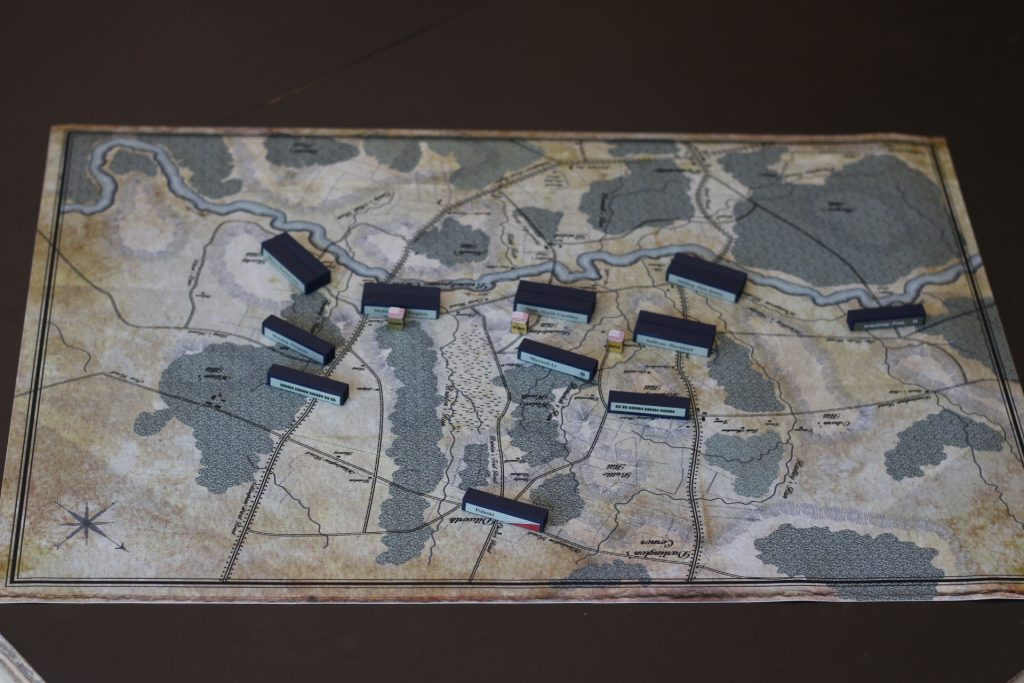
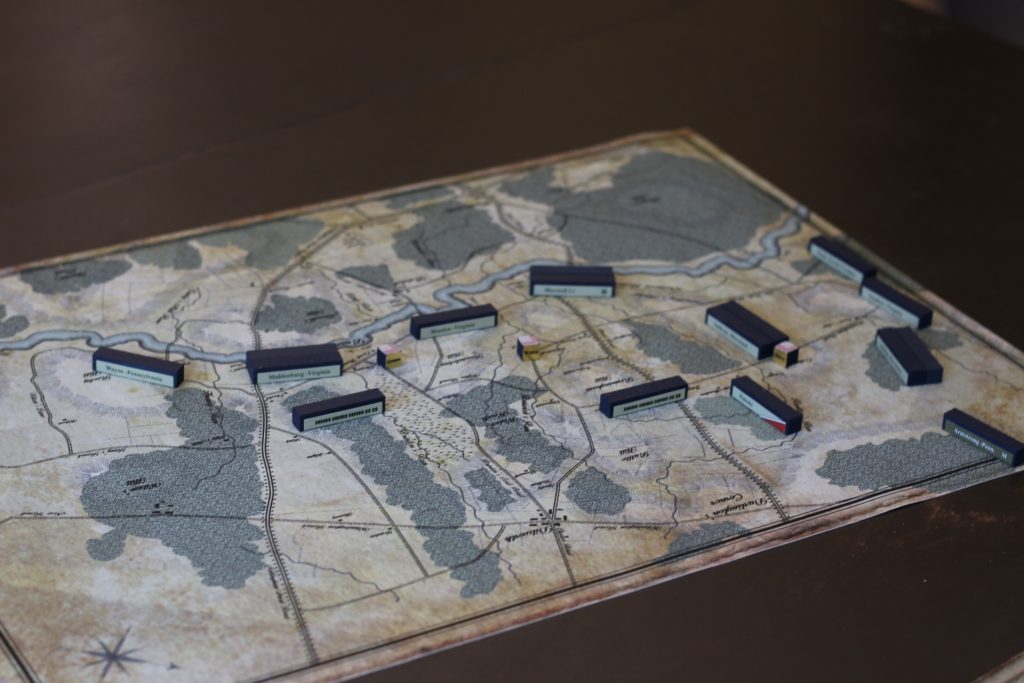
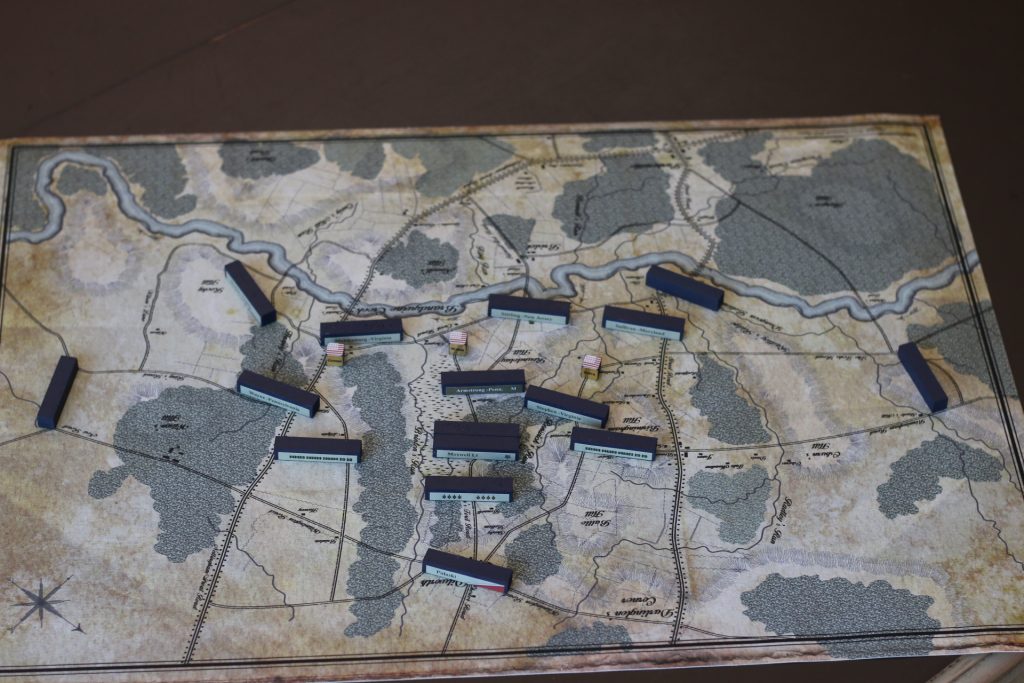
reserve, once they know where it is.
Forgetting Break
Once the defense is setup, it is a good time to take a little break. Go to another room. Have a snack. Catch up on emails, texts, posts, etc. Forget about all that. Set it all aside.
Offensive Plan
Next I like to start thinking about an overall offensive plan. Where will we strike? What do we want to accomplish? How will we defeat the defender? Reading some historical accounts can be a great source of inspiration. Often you will hear an armchair historian claim that this particular moment or decision was the key to the entire campaign / battle. It was a huge mistake and resulted in defeat. If only this general had done this instead.
Interesting. Is it true? This is an aspect of our hobby that I find most fascinating. Wargames give us a chance to actually test and try these theories out!
Example: If only Hitler had pushed a little harder, he could have destroyed the BEF at Dunkirk. Germany would have won the war right then! There is no way Britain could have continued to resist. They would have been forced to negotiate surrender. Really?
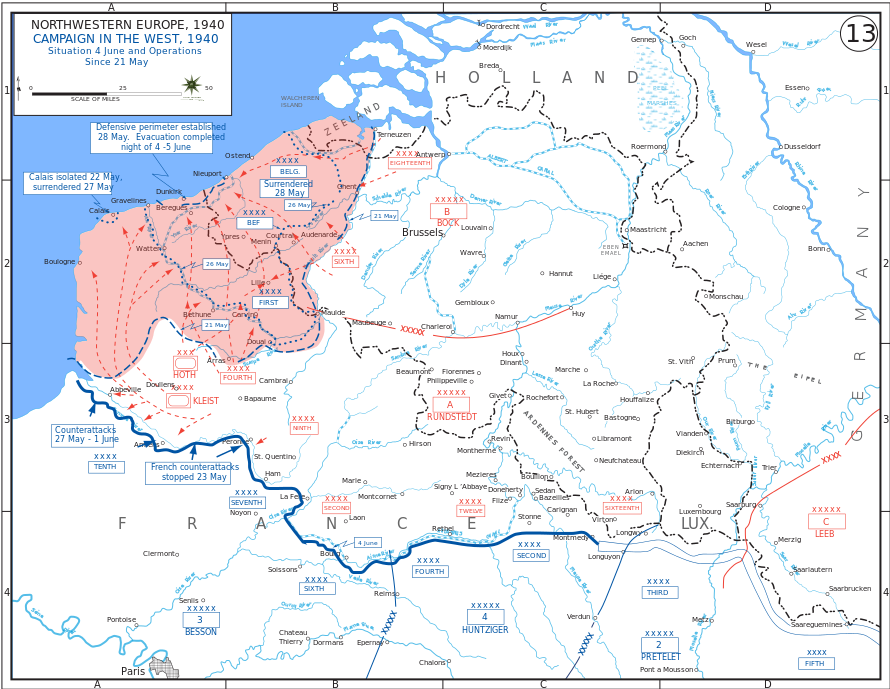
Let’s find out! Let’s play a good strategic wargame on WWII. Set it up starting in summer of 1940. What do the Germans do? Everything they can to ensure the destruction of the BEF. What happens? Can they easily invade and conquer the British Isles now? Exactly how would you conduct a Sea Lion invasion? Fascinating to see how this could play out.
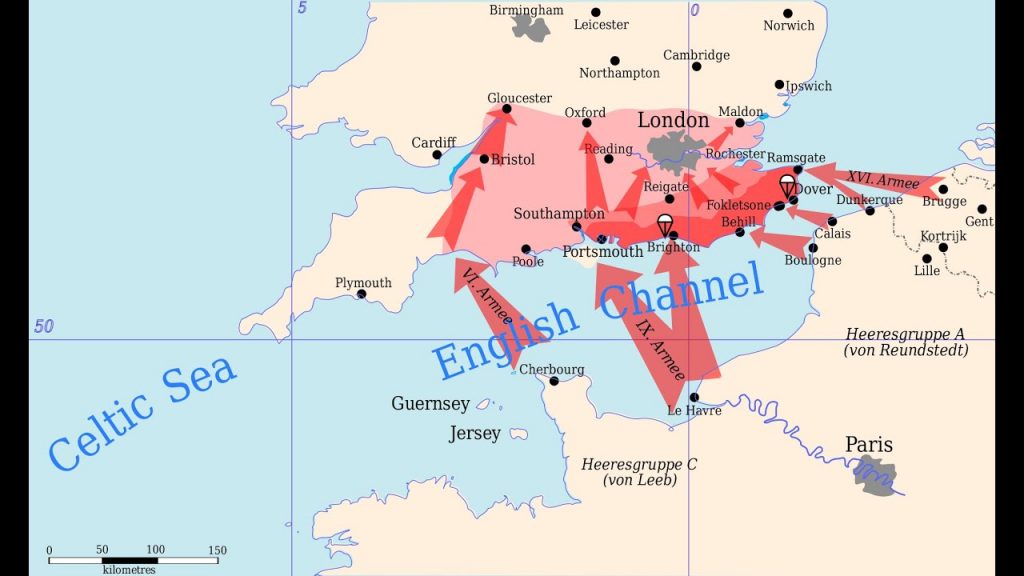
How does the defender setup? What does the defender do? This is a critical part of solitaire play. Also why it is best to set the defender up first, before you have an offensive plan. Remember, you’re not playing to win. You are playing to learn. Set the defender up as they would have historically. Once the game begins, try to play the Allied side as they would have moved historically. AS IF they didn’t know what the German plan was.
While playing, you do know what the Germans are up to. You have to set all that aside. Pretend you don’t know. Obviously, if you set up and play the Allies with the intent of saving the BEF being the first priority, then you will right? Set the BEF up in Brest and immediately move them back to Blighty on turn one. There. Mission accomplished. What is the point of that? What have you learned?
Actually, there is an interesting lesson here too. It reminds me of Sun Tzu. The best plan is one designed to defeat the enemy’s plan. The problem is, we usually don’t know what the enemy plan is. We have to try to figure that out on the fly.
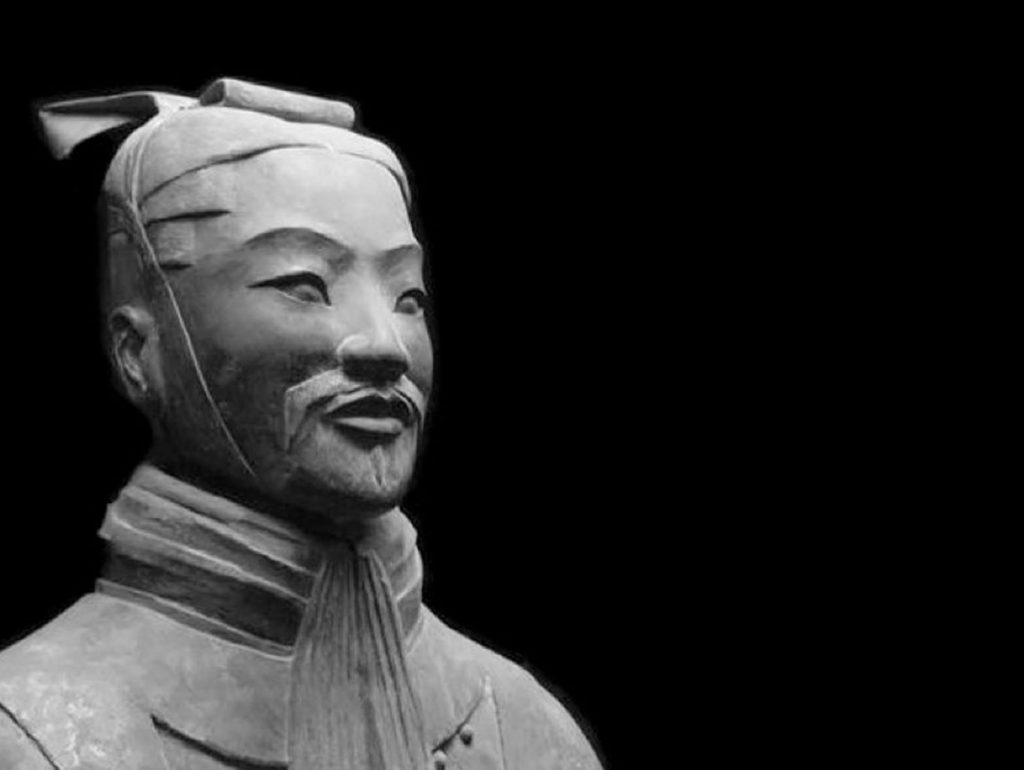
Play the defense according to what is best for them. Set them up AS IF they didn’t know what was coming. Play them AS IF they didn’t know what the enemy was going to do next. IF they didn’t know, what is their best move? What would they most likely do? Don’t jump the gun.
Here is another key question: When would they know? At some point, the British had an ‘Oh #$@*!’ realization that the BEF was in trouble. How are we going to get them out of there?! When would that moment happen? What would trigger that realization? What would the Allies do then to save the BEF?
Example:
It is turn 1 at Brandywine.
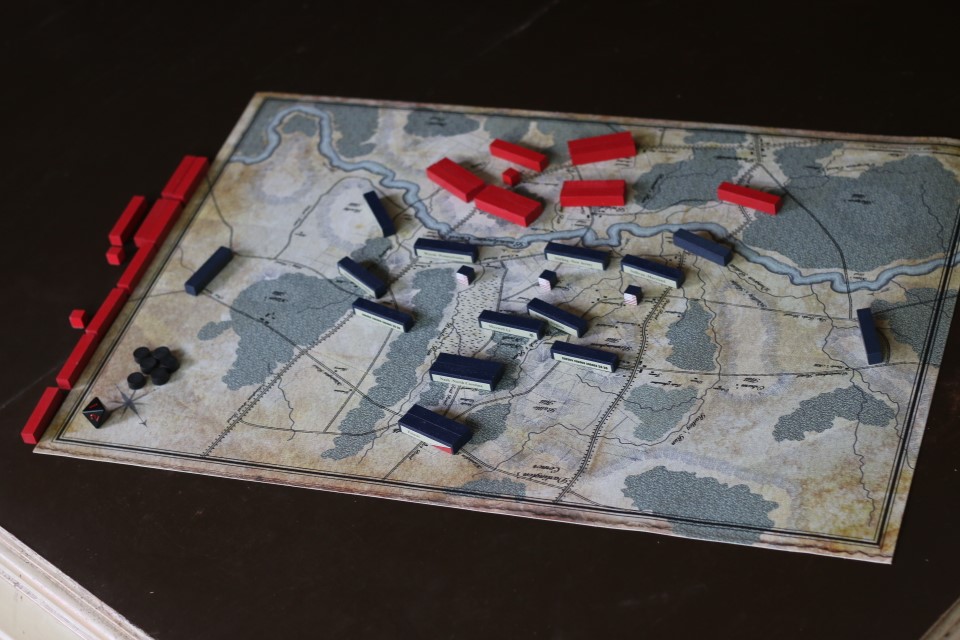
Wouldn’t you know it, Washington gets picked to move first.
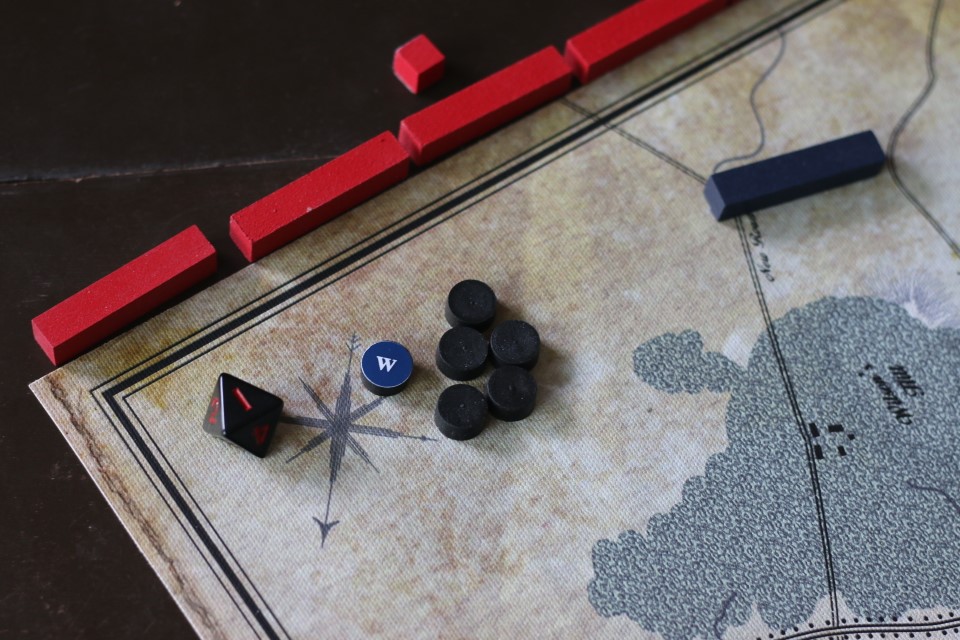
He is in command of the central reserve. What should he do? The British haven’t moved yet. Since we are running both sides, we DO know that Cornwallis is planning to flank on the Colonial left. Great but Washington doesn’t know that yet. We can’t rush Washington over to his left now. The Colonials, at this time, have no idea where Cornwallis will strike. What does Washington know? When will he know it?
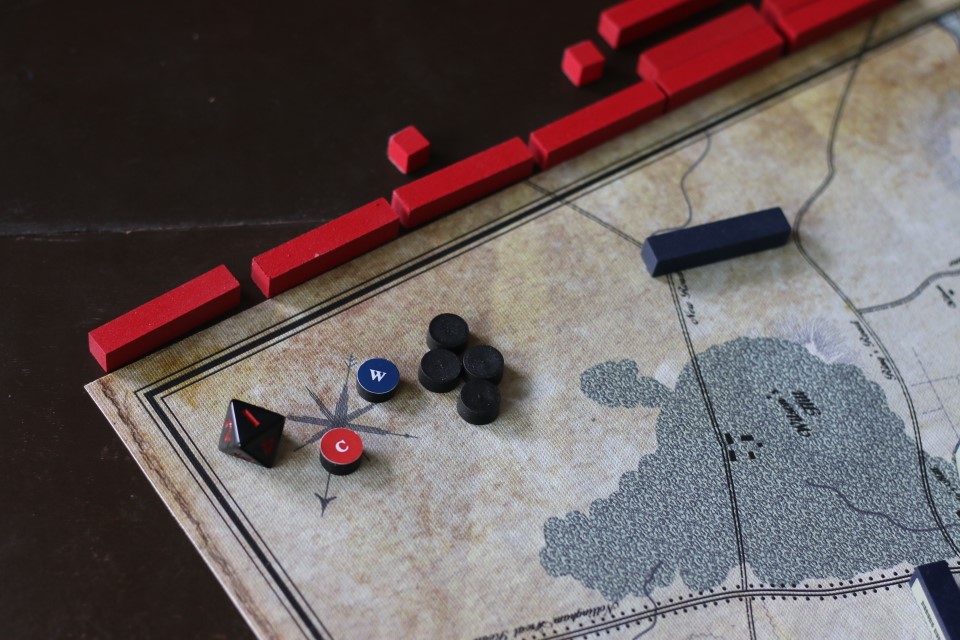
The best choice here is for Washington to delay his move. With a little luck, this could result in Cornwallis moving first, which would allow Washington to respond this turn. If Washington is forced to move first, he should simply pass. At this point, he would have no intell to act on.
If Cornwallis is picked to move next, he will also attempt to delay his move. Why? Because he wants to keep his intent hidden for as long as possible. Ideally, the British want the Colonials to waste their first turn passing. If the British can move first on turn 2, they will in effect get a double move before the Colonials can even do anything. That could be a devastating blow!
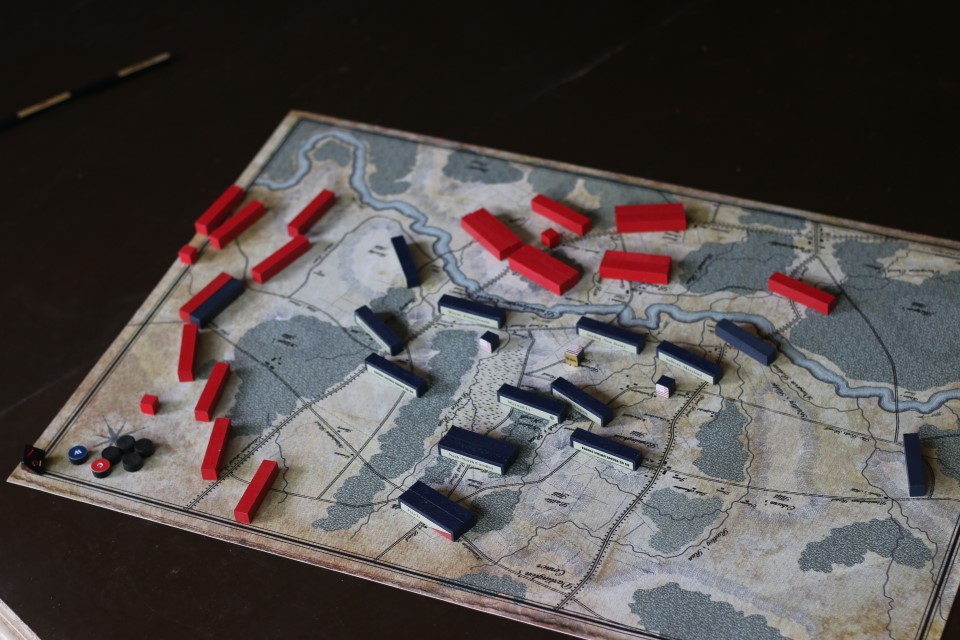
Play the offense according to your pre determined plan. I generally won’t change the offensive plan unless it goes terribly wrong. If it does, it might be time to pull the plug and start a new game. Sometimes not though. This can be an interesting situation too. It happens in real life. The plan failed. At what point do you realize this? At what point do you admit defeat? What is plan B? What can you do now? Given this, is there another way to win?
Wrestling with questions like these is not only great training, it is very rewarding and great fun!
This goes back to our earlier questions: Is solitaire play a waste of time? Detrimental to understanding military science and command?
No! We find it extremely useful. Even if you were constantly surrounded by lots of eager wargame players, I would still recommend playing solitaire once in awhile.
There are many things you can learn more quickly and deeply by playing solitaire. It will make you a better player. It will make you a better leader / commander. Solitaire play trains you to think from both sides. This is a critical command skill. It is easy to see through our own eyes. How does the enemy see us? What do they know? What don’t they know? If we move here, how will that look to the enemy? When will they realize what we are up to? What is the enemy’s intent? How can we conceal our own intent?
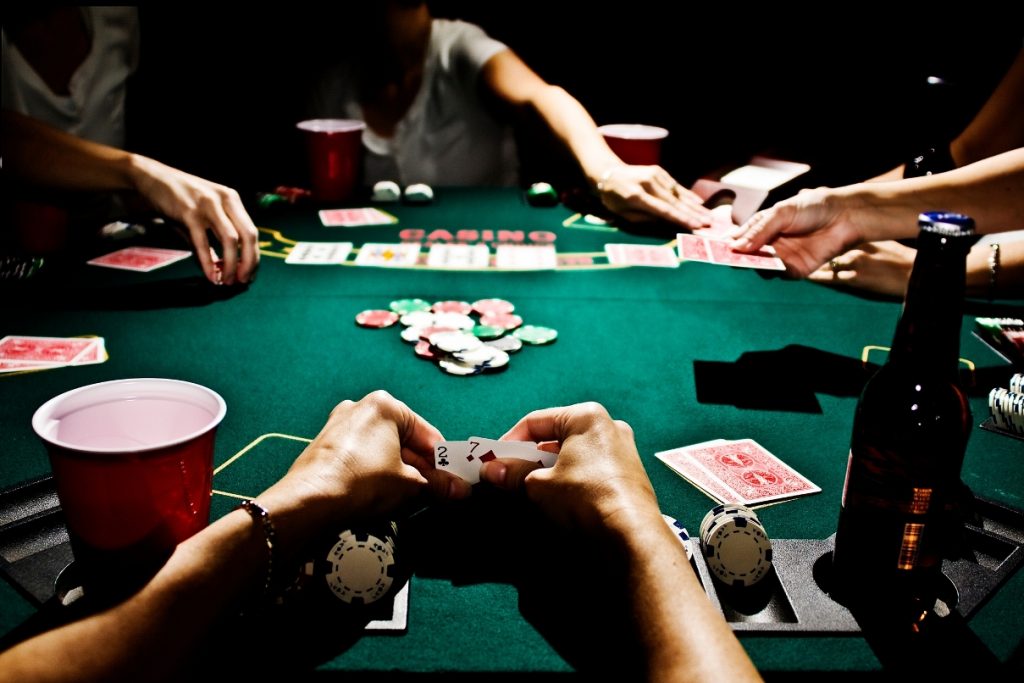
Solitaire play teaches you to see through the enemy’s eyes. This is a real world training benefit that is priceless. Some of the best training you can ever do.
–Even though silly aunts may not be able to stop laughing.
